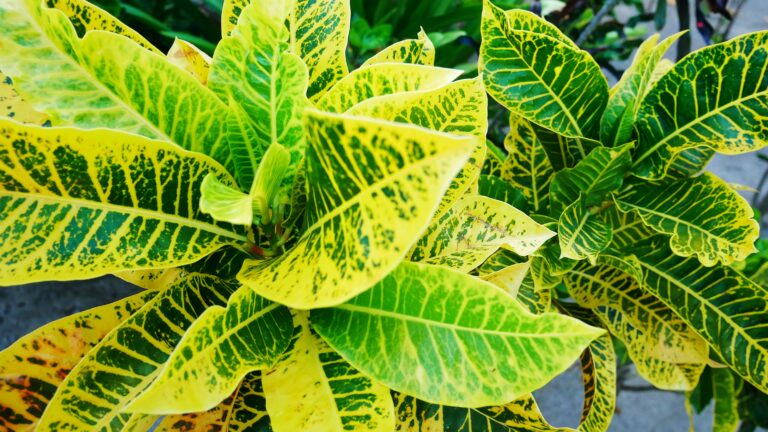About the Croton Plant
Also known as Codiaeum variegatum, the beautiful Croton plant is native to Asia, and we know hundreds of variations of it. As they come from a humid, warm climate, the best place for them is usually found indoors. Besides being a nice decoration for our home, it is also beneficial for clearing the air and adding humidity.
Care
Many people like Croton plants because they do not require much care. You need to make sure that the temperature stays 60 to 80 degrees Fahrenheit, and that the humidity level is between 40-80 percent. Grouping it with other plants in your house could help to achieve this. If you are keeping your Croton plant outside, remember to bring it inside before the cold season.
Like many other plants (for example the Dahlia), the Crotons also prefer loose, well-drained soil. Watering them regularly is especially important during warm seasons. Full and partial sunlight is also key if you want to keep your Croton plant happy (and alive).
Common Pests
- mealybugs
- mites
- scales
- thrips
Propagation
If the temperature is right in your area (or in your home), you can propagate croton plants all seasons of the year. They can be easily propagated with stem cuttings, but they do not grow easily from seeds.
Frequently Asked Questions
- make sure the humidity level is between 40-80%
- water the plant regularly
- use ammonium sulfate to keep the soil acidic
- make sure it has full- or partial sunlight most of the day
Are croton plants toxic to cats?
Yes, unfortunately, Croton plants are poisonous to cats and can cause serious health issues for them.
Are Croton plants toxic to dogs?
Yes, unfortunately, Croton plants are poisonous to dogs as well and can cause some serious health issues for them.
Are croton plants perennials?
Yes, Crotons are perennials, which means you can enjoy the company of these beautiful plants for years if you take good care of them.

